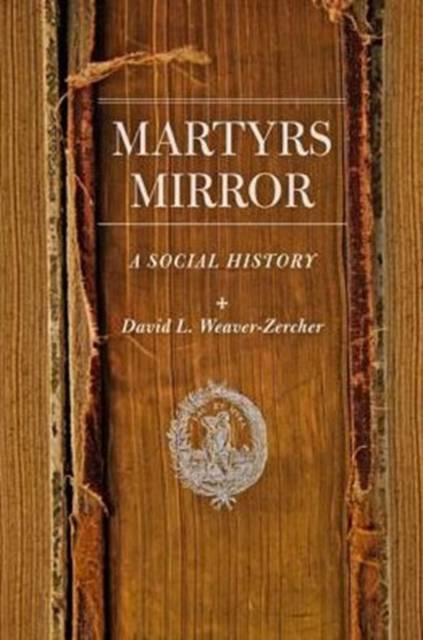
- Afhalen na 1 uur in een winkel met voorraad
- Gratis thuislevering in België vanaf € 30
- Ruim aanbod met 7 miljoen producten
- Afhalen na 1 uur in een winkel met voorraad
- Gratis thuislevering in België vanaf € 30
- Ruim aanbod met 7 miljoen producten
Omschrijving
The first scholarly history of the iconic Anabaptist text.
Approximately 2,500 Anabaptists were martyred in sixteenth- and early seventeenth-century Europe. Their surviving brethren compiled stories of those who suffered and died for the faith into martyr books. The most historically and culturally significant of these, The Bloody Theater--more commonly known as Martyrs Mirror--was assembled by the Dutch Mennonite minister Thieleman van Braght and published in 1660. Today, next to the Bible, it is the single most important text to Anabaptists--Amish, Mennonites, and Hutterites. In some Anabaptist communities, it is passed to new generations as a wedding or graduation gift.
David L. Weaver-Zercher combines the fascinating history of Martyrs Mirror with a detailed analysis of Anabaptist life, religion, and martyrdom. He traces the publication, use, and dissemination of this key martyrology across nearly four centuries and explains why it holds sacred status in contemporary Amish and Mennonite households. Even today, the words and deeds of these martyred Christians are referenced in sermons, Sunday school lessons, and history books.
Weaver-Zercher argues that Martyrs Mirror was designed to teach believers how to live a proper Christian life. In van Braght's view, accounts of the martyrs helped to remind readers of the things that mattered, thus inspiring them to greater faithfulness. Martyrs Mirror remains a tool of revival, offering new life to the communities and people who read it by revitalizing Anabaptist ideals and values. Meticulously researched and illustrated with sketches from early publications of Martyrs Mirror, Weaver-Zercher's ambitious history weaves together the existing scholarship on this iconic text in an accessible and engaging way.
Specificaties
Betrokkenen
- Auteur(s):
- Uitgeverij:
Inhoud
- Aantal bladzijden:
- 440
- Taal:
- Engels
- Reeks:
Eigenschappen
- Productcode (EAN):
- 9781421418827
- Verschijningsdatum:
- 15/03/2016
- Uitvoering:
- Hardcover
- Formaat:
- Genaaid
- Afmetingen:
- 155 mm x 231 mm
- Gewicht:
- 725 g

Alleen bij Standaard Boekhandel
Beoordelingen
We publiceren alleen reviews die voldoen aan de voorwaarden voor reviews. Bekijk onze voorwaarden voor reviews.











